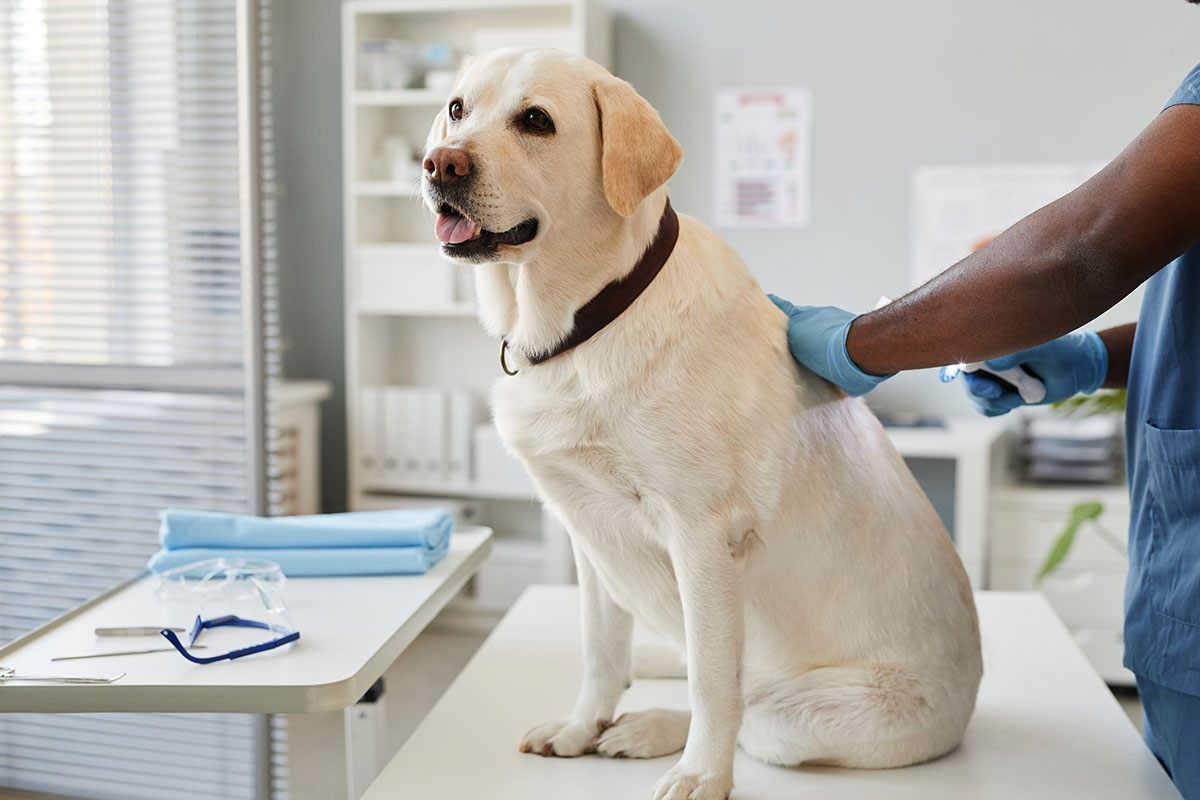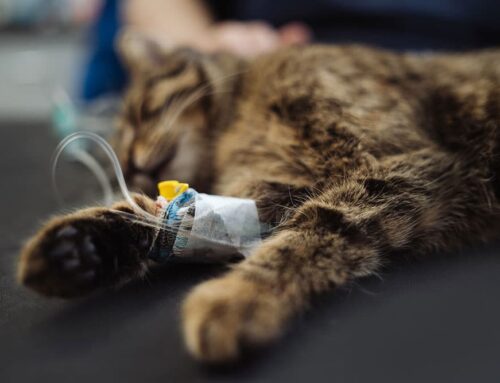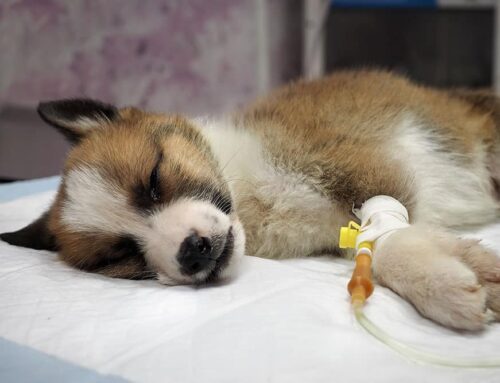When bringing your dog in for their annual veterinary visit, you may have been offered to vaccinate your pet with a leptospirosis, or lepto, vaccine. Oftentimes this vaccine is referred to as a “lifestyle” vaccine, meaning that the vaccine is necessary for dogs that have a lifestyle that puts them at risk of contracting lepto. We want to protect as many dogs as we can from contracting any and all diseases, especially when we have vaccines that can prevent them. Almost all dog’s lifestyles include going outside, which is the major contact area for contracting lepto. That is why we recommend all dogs be vaccinated for lepto, regardless of how they spend a majority of their time.
What is Leptospirosis?
Leptospirosis is a disease caused by several strains of bacteria that affects people and animals. Lepto is considered a zoonotic disease, meaning it is also passed between people and animals. It is spread through the urine of infected animals. The bacteria targets the kidneys and liver, which is why it is excreted through urine. Lepto is commonly carried in the kidneys of mice, rats, skunks, raccoons, and opossums. Rodent dense populations may be more likely to contract leptospirosis.
What Are The Symptoms?
It is important to know that not all dogs show signs of illness after becoming infected. It may be weeks to months after contracting lepto that symptoms arise. Symptoms of leptospirosis vary from patient to patient, but include:
- Lethargy
- Poor appetite
- Tender muscles
- Urinating more or less than normal
- Dehydration
- Diarrhea
- Vomiting
- Fever
- Shivering
- Increased thirst
- Yellow appearance to eyes, skin, and/or gums
- Blood in urine or feces
- Bruising
- Abnormal kidney and/or liver values
If you have noticed any of these symptoms in your dog, consult your veterinarian.
How Do You Contract Leptospirosis?
Leptospirosis is contracted by ingesting contaminated food or water, and there have been some documented cases of contraction occurring through an open wound from swimming in contaminated water sources. Another form of transmission is seen in pregnant dogs; mothers can transmit lepto to her puppies via her placenta. People contract lepto in the same way dogs do: by coming into contact with contaminated food, water, or soil, as well as touching bodily fluids (except saliva) from an infected animal. The risk for contracting leptospirosis is higher after a hurricane, steady rain, or flood, when it is more likely for animals to come in contact with contaminated water and soil. To avoid contracting leptospirosis, wear disposable gloves while handling items that may have come in contact with dog or wildlife urine, and wash your hands thoroughly afterwards.
How To Prevent Leptospirosis in Dogs
The canine leptospirosis vaccine protects against 2 to 4 of the strains of leptospirosis. It can be administered to puppies over 12 weeks of age and will need to be re-boostered roughly 3 weeks after the initial vaccination. The vaccine is good for 1 year. After being vaccinated for lepto the first time, the immunization will need to be readministered once annually.
If your dog has previously been infected with leptospirosis, they can become reinfected. Past infection does not make them immune to contracting it again. We recommend vaccinating all dogs for lepto once they are of eligible age, even if previously infected. The vaccine does not cover all of the strains of leptospirosis, but it can prevent them from contracting the 2 to 4 strains it does protect against.
Some ways to prevent your dog from coming into contact with leptospirosis include:
- Avoiding sniffing or licking wet areas outside, as they could be contaminated with urine.
- Most dogs will be naturally inclined to sniff areas where other dogs have urinated, but we encourage owners to not allow their dog to do this, as the urine could be carrying lepto.
- Any stagnant water source should be avoided as far as drinking or swimming.
- If you live in a rodent dense population, avoid any wet area outside as much as possible.
- The likelihood of wet areas being contaminated are much higher in these rodent dense regions, so we recommend taking extra caution.
- If your dog boards or goes to doggy daycare, make sure they are vaccinated for leptospirosis, as it is often not required by boarding facilities and there may be unvaccinated dogs exposing your pet to contaminated urine.








Leave A Comment